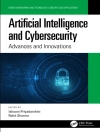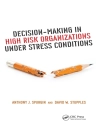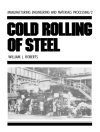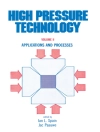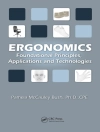This collection reviews the latest research on dairy cattle genetics and advanced methods of genetic evaluation and selection.
After an overview of genetic improvements achieved so far, Part 1 assesses the problem of inbreeding and genetic diversity in modern dairy cattle as well as opportunities for crossbreeding. Part 2 then goes onto review research on targeting non-production traits such as fertility, feed conversion efficiency and methane emissions as well as resistance to disease and resilience to heat stress.
Part 3 then surveys the latest techniques and advances in genomic selection (GS) in such areas as functional annotation and use of sequence variants to improve genomic prediction, as well as developments in genetic evaluation (GE). The final part of the book reviews developments in embryo technologies, gene editing and the way new techniques are being integrated in practice into dairy breeding programmes.
Tabela de Conteúdo
Part 1 Managing genetic diversity
1.Genetic and phenotypic improvements in temperate dairy systems: an overview: Allison Fleming, Canadian Dairy Network, Canada; Tatiane Chud, University of Guelph, Canada; Luiz Brito, Purdue University, USA; Francesca Malchiodi, Semex, Canada; and Christine Baes and Filippo Miglior, University of Guelph, Canada;
2.Assessing inbreeding and genetic diversity in the Holstein breed using pedigree and genomic approaches: Christine Baes, University of Guelph, Canada and University of Bern, Switzerland; and Bayode Makanjuola and Larry Schaeffer, University of Guelph, Canada;
3.Genetic diversity in dairy cattle: variation within and between breeds: Kor Oldenbroek, Wageningen University and Research, The Netherlands;
4.The use of genomic information to improve selection response while controlling inbreeding in dairy cattle breeding programs: C. Maltecca, North Carolina State University, USA; C. Baes, University of Guelph, Canada; and F. Tiezzi, North Carolina State University, USA;
5.Opportunities and challenges in crossbreeding dairy cattle in temperate regions: Bradley J. Heins, University of Minnesota, USA;
Part 2 Breeding objectives and genetics of new traits
6.Recent developments in multi-trait selection in dairy cattle breeding: Peter Amer, Abacus Bio Ltd, New Zealand; and Tim Byrne, Abacus Bio International Ltd, UK;
7.Advances in dairy cattle breeding to improve fertility/reproductive efficiency: Mekonnen Haile-Mariam, Agriculture Victoria, Agri Bio, Australia; and Jennie Pryce, Agriculture Victoria and La Trobe University, Australia;
8.Advances in dairy cattle breeding to incorporate feed conversion efficiency in national genetic evaluations Mike Coffey, Scotland’s Rural College (SRUC), UK;
9.Improving phenotypic prediction in dairy cattle breeding using the metagenome: Oscar González-Recio, Alejandro Saborio-Montero, Adrián López-García, Beatriz Delgado and Cristina Óvilo, Instituto Nacional de Investigación y Tecnología Agraria y Alimentaria, Spain;
10.Advances in dairy cattle breeding to improve resistance to mastitis: John Cole, USDA-ARS, USA;
11.Advances in dairy cattle breeding to improve resistance to claw disorders/lameness: C. Egger-Danner, Zucht Data EDV-Dienstleistungen Gmb H, Austria; and B. Heringstad, Norwegian University of Life Sciences (NMBU), Norway;
12.The use of mid-infrared spectral data to predict traits for genetic selection in dairy cattle: Nicolas Gengler and Hélène Soyeurt, University of Liège, Belgium;
13.Advances in dairy cattle breeding to improve heat tolerance: Thuy T. T. Nguyen, Agriculture Victoria, Australia;
14.Advances in dairy cattle breeding to improve longevity: Roel Veerkamp, Wageningen University and Research, The Netherlands; and Mathijs van Pelt, CRV Cooperation, The Netherlands;
Part 3 Genetic selection and evaluation
15.Developments in genomic predictions in dairy cattle breeding: a historical overview of methods, technologies, and applications: Luiz F. Brito and Hinayah R. Oliveira, Purdue University, USA and University of Guelph, Canada; Fabyano F. Silva, Federal University of Viçosa, Brazil; and Flavio S. Schenkel, University of Guelph, Canada;
16.Linking genotype to phenotype: functional annotation as a tool to advance dairy cattle breeding: James E. Koltes, Iowa State University, USA; and Francisco Peñagaricano, University of Florida, USA;
17.Finding causal variants for monogenic traits in dairy cattle breeding: Matt Littlejohn, Livestock Improvement Corporation (LIC) and Massey University, New Zealand; and Chad Harland, Livestock Improvement Corporation (LIC), New Zealand;
18.Genetic evaluation: use of genomic data in large-scale genetic evaluations in dairy cattle breeding: Joel Ira Weller, The Volcani Center, Israel;
19.International genomic evaluation methods for dairy cattle: Peter Sullivan, Canadian Dairy Network, Canada;
20.Genetic and genomic dairy cattle evaluations in developing countries: Raphael Mrode, Scotland’s Rural College, UK and International Livestock Research Institute, Kenya;
Part 4 Reproductive technologies and breeding programmes
21.Developments in the use of embryo technologies in dairy cows: Trudee Fair and Pat Lonergan, University of College Dublin, Ireland;
22.The use of gene editing techniques in dairy cattle breeding: Alison L. Van Eenennaam and Amy E. Young, University of California-Davis, USA;
23.Development of dairy breeding programmes: Didier Boichard, INRA, Agro Paris Tech and Université Paris-Saclay, France;
Sobre o autor
Dr. Alison Van Eenennaam is a Cooperative Extension Specialist in the field of Animal Genomics and Biotechnology in the Department of Animal Science at University of California-Davis, USA. She serves as the bovine genome coordinator for the USDA National Animal Genome Research Program, served as a member of the National Academies of Sciences, Engineering and Medicine (NASEM) Study Committee for “Science Breakthroughs 2030: A Strategy for Food and Agricultural Research”, and is an elected Fellow and current chair of the American Association for the Advancement of Science (AAAS) Agriculture, Food, and Renewable Resources Section O. Dr. Van Eenennaam has been the recipient of many distinguished awards throughout her career.



